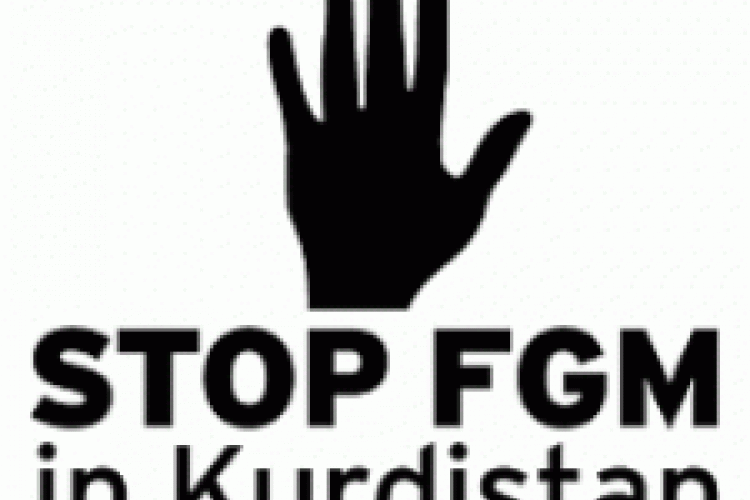Female Circumcision Still Prevalent Among Some Kurdish Communities
Rûdaw: ERBIL, Kurdistan Region -
Around 34 percent of women in the ethnically diverse city of Kirkuk have been circumcised and most of them are Kurdish, according to a new joint survey by the German WADI organization and the Iraqi Pana Center.
The survey on female genital mutilation found that the practice has declined in Kirkuk; however, 15 percent of girls in the community under 20 have been circumcised.
Awezan Nuri, a women’s activist from Kirkuk, says, “There are people in Kirkuk who still believe in female genital mutilation.” Most girls from Kirkuk were circumcised at the age of 5, according to Nuri.
Female genital mutilation is a common practice in many countries, especially among African and Middle Eastern nations. It has been estimated that between 100 and 140 million women around the world have been circumcised, with approximately 3 million girls undergoing the procedure every year.
WADI, which supports programs of development, gender mainstreaming and conflict resolution in Kurdistan, has been working to curb the practice here since 2005. The organization has prepared several reports on the issue, some of which have faced criticism from other organizations.
The survey, which includes 61 questions, was completed by more than 1,200 women under the age of 14.
The report confirms that female genital mutilation is practiced among all nationalities in Kirkuk. Sixty-five percent of the circumcised women are Kurds, 25 percent are Arabs and 12 percent are Turkmen.
The survey also noted the religious groups of the participants, reporting that 40 percent were Sunni Muslims, 23 percent Shia Muslims and 42 percent were from the Kakayi religious minority. There were zero cases among the Christian population.
According to the survey, female genital mutilation among girls under 20 is estimated at 15 percent, but among elderly women is 80 percent. It is expected the number among young girls will continue to decline in the future.
Falah Muradkhan, WADI coordinator in Iraq, told Rudaw, “Compared to past years, female genital mutilation in Kirkuk has declined. However, the current number is still considerably dangerous.”
Nuri told Rudaw, “Activities organized by women’s groups in Kirkuk have contributed to the decline in numbers. However, there are people in Kirkuk who still believe in female genital mutilation.”
Nuri said that in a village visited by her organization, 35 out of 37 women were circumcised. These circumcised women practiced female genital mutilation on their own daughters before they were 5.
“They are still under the influence of a society which believes an uncircumcised woman is not clean,” added Nuri.
The report mentions that Islam and tradition play a major role in the practice. But Nuri says, “We will be persistent in our efforts to decrease female genital mutilation as it is illegal.”
In 2006, Egypt-based Azhar University held a conference for Muslim scholars from around the world to discuss the issue. At the end of the conference, the scholars declared that practicing female genital mutilation is a crime.
Ahmad Shafeyi, member of the Fatwa committee of the Islamic Scholars’ Union in Kurdistan, said, “There isn’t any Hadith (sayings from Prophet Mohammed) about female genital mutilation, so if it is medically proven to have health risks for women, it is better to not be practiced.”
Muslim scholars have not yet made female genital mutilation illegal explicitly. Shafeyi says, “Islam has not outlawed female genital mutilation nor has it encouraged it.”
Under Kurdish Parliament’s domestic violence law, female genital mutilation is illegal and those who practice it will be punished.
According to the law, hospital employees and doctors who practice female genital mutilation face a stiffer penalty. They can be sentenced to 15 years to prison and fined 15 million Iraqi dinars, approximately US$12,000.
Gasha Dara, who chairs the committee for women’s rights in Kurdish Parliament, said, “The domestic violence law categorizes female genital mutilation as violence against women.”
She added, “We will never be able to eradicate female genital mutilation, but we can limit it. “








